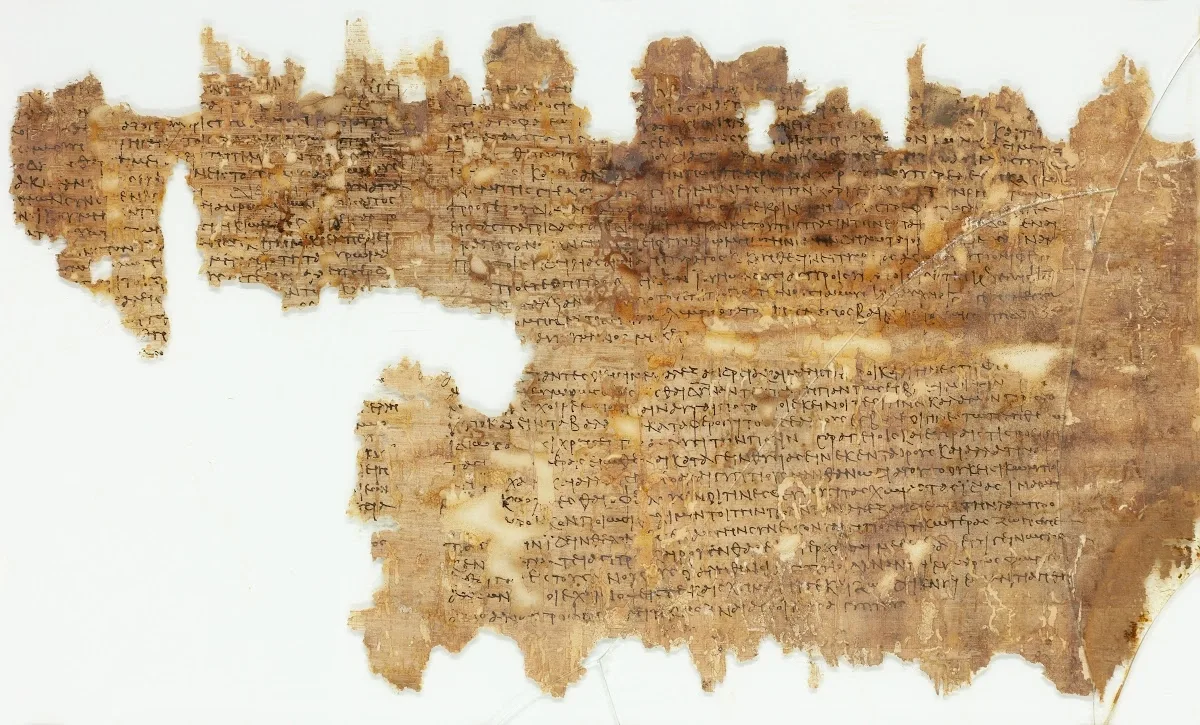The Constitutio Antoniniana, also known as the Edict of Caracalla, was a monumental legal reform enacted in 212 CE by the Roman Emperor Caracalla. This edict extended Roman citizenship to nearly all free men within the vast Roman Empire, transforming the social and legal landscape of the ancient world. The Constitutio Antoniniana is considered one of the most significant developments in Roman law and had far-reaching consequences for the empire’s administration, economy, and identity. By granting universal citizenship, Caracalla not only aimed to strengthen his political power but also sought to address financial needs through increased taxation. This move, however, was met with mixed reactions and has been the subject of extensive historical debate.
Background: The Roman Concept of Citizenship
Before the Constitutio Antoniniana, Roman citizenship was a coveted status that conferred a range of legal, social, and economic privileges. Citizenship in the Roman Republic and early Empire was a marker of identity, loyalty, and privilege. Citizens had the right to vote in Roman assemblies, hold public office, marry Roman citizens, enter into legal contracts, and appeal legal decisions. They were also subject to Roman law and could not be subjected to certain forms of punishment, such as crucifixion.
Citizenship was originally limited to the inhabitants of the city of Rome and its surrounding territories. However, as Rome expanded its influence across the Italian peninsula and beyond, citizenship was gradually extended to other peoples, often as a reward for loyalty or service to Rome. The Social War (91–88 BCE) saw the extension of Roman citizenship to all free inhabitants of Italy as a result of the demands of Rome’s Italian allies, who had fought for and achieved the same legal status as Roman citizens.
By the time of the early Empire, citizenship had become more widely available, but it was still largely restricted to the inhabitants of Roman colonies, military veterans, and certain privileged individuals or communities in the provinces. The majority of the empire's population, particularly those living in the provinces, were classified as peregrini (foreigners) and did not enjoy the full rights and protections of Roman citizens. These non-citizens were subject to local laws and customs, rather than Roman law, and lacked many of the legal protections that citizens enjoyed.
The Reign of Caracalla
Caracalla, born Lucius Septimius Bassianus in 188 CE, was the son of Emperor Septimius Severus and his wife, Julia Domna. He became co-emperor with his father in 198 CE and later shared the throne with his brother, Geta. Following the death of their father in 211 CE, Caracalla and Geta’s relationship deteriorated rapidly, culminating in Caracalla’s murder of Geta later that year. This fratricide left Caracalla as the sole ruler of the Roman Empire.
Caracalla’s reign was marked by military campaigns, heavy taxation, and efforts to secure his power in the wake of his brother’s assassination. He was a ruler who understood the importance of the military, and he made significant efforts to maintain the loyalty of the army, including granting them increased pay and benefits. However, these military expenditures placed a significant strain on the imperial treasury, and Caracalla was forced to seek new sources of revenue.
It was in this context that Caracalla issued the Constitutio Antoniniana, an edict that would have profound implications for the empire. While the exact motivations behind the edict are debated by historians, it is widely believed that Caracalla sought to increase tax revenues by expanding the pool of citizens subject to Roman taxation. The edict also likely served political purposes, allowing Caracalla to consolidate his power by broadening the base of his support and securing the loyalty of provincial elites.
The Constitutio Antoniniana: Provisions and Impact
The Constitutio Antoniniana was issued in 212 CE and extended Roman citizenship to all free men within the empire, with the exception of a few groups, such as certain slaves and those who had committed specific crimes. Free women were also granted the rights of Roman citizenship, though they remained under the legal authority of their male relatives.
The edict marked a radical departure from previous policies, as it effectively eliminated the distinction between peregrini and Roman citizens. This meant that millions of people across the empire, from Spain to Syria and from Britain to Egypt, were suddenly granted the legal status of Roman citizens.
The immediate impact of the edict was significant:
- Legal Uniformity: By granting universal citizenship, the Constitutio Antoniniana brought a greater degree of legal uniformity to the empire. All citizens were now subject to Roman law, which helped to standardize legal practices and reduce the complexity of administering justice across diverse provinces. This legal standardization likely made it easier for provincial governors and Roman administrators to govern more efficiently.
- Taxation: One of the primary motivations behind the edict was likely economic. Roman citizens were subject to specific taxes, including the tributum (a land tax) and the capitatio (a poll tax). By increasing the number of citizens, Caracalla expanded the tax base, potentially boosting revenue for the imperial treasury. However, this also meant that many provincials who had previously been exempt from certain taxes now faced increased financial burdens.
- Military Recruitment: The edict may have also been aimed at facilitating military recruitment. Roman citizenship was often used as an incentive to encourage service in the legions, but with the extension of citizenship to all free men, the distinction between citizen and non-citizen soldiers became less relevant. This could have made it easier to recruit soldiers from the provinces, though it also meant that citizenship was no longer a reward for military service.
- Social and Cultural Integration: The Constitutio Antoniniana was a powerful tool for promoting the integration of the provinces into the Roman state. By granting citizenship to provincials, Caracalla effectively tied their legal and social status to the central authority of Rome. This helped to foster a sense of shared identity among the diverse populations of the empire, even as local customs and traditions continued to thrive.
- Challenges and Criticism: Despite its benefits, the edict was not without its challenges. The sudden expansion of citizenship may have devalued its significance, leading to a sense of resentment among those who had previously held it as a mark of privilege. Additionally, the increased tax burden on provincials likely contributed to growing discontent in some regions, and the edict did not resolve the underlying economic and social tensions that plagued the empire.
The Long-Term Consequences
The Constitutio Antoniniana had far-reaching consequences for the Roman Empire, many of which became more apparent in the years following Caracalla’s reign.
- Erosion of Civic Identity: One of the unintended consequences of the edict was the erosion of traditional civic identities within the empire. Previously, citizenship was a marker of loyalty to the city of Rome and its values. With citizenship now extended to all free men, this identity became diluted, and the sense of belonging to a local community or civitas became more important. This shift in identity may have contributed to the weakening of the traditional Roman virtues that had once underpinned the empire.
- Increased Provincial Influence: With the extension of citizenship, the provinces gained greater influence in the Roman political and social spheres. Provincial elites, who now had the same legal rights as those in Italy, could aspire to higher positions within the imperial administration and even the Senate. This shift helped to integrate the provinces more closely into the empire but also contributed to the decline of Italy’s dominance. Over time, many key political figures and emperors would come from the provinces rather than from Rome or Italy.
- Legal and Administrative Complexity: While the Constitutio Antoniniana aimed to create legal uniformity, it also introduced new challenges. The sheer diversity of the empire’s population meant that applying Roman law universally was not always practical or effective. Local customs and legal practices continued to persist, leading to a complex legal landscape that required careful management. The edict also placed significant administrative burdens on the imperial bureaucracy, which had to adapt to the sudden increase in citizens.
- Economic Implications: The economic impact of the Constitutio Antoniniana was mixed. While the expansion of the tax base provided an immediate boost to imperial revenues, the long-term effects were less positive. The increased taxation likely exacerbated economic difficulties in some regions, particularly in the eastern provinces, where local economies were already under strain. Additionally, the devaluation of citizenship as a mark of privilege may have led to a decline in civic participation and investment, further weakening the economic foundations of the empire.
- Cultural Integration and Tensions: The extension of citizenship played a crucial role in the cultural integration of the empire. By making all free men Roman citizens, Caracalla helped to create a shared sense of identity that transcended local and regional differences. This process of Romanization contributed to the spread of Roman culture, language, and customs throughout the provinces. However, it also led to tensions as local populations grappled with the loss of their distinct identities and the imposition of Roman norms. In some cases, this tension contributed to unrest and resistance to imperial authority.
- Military Implications: The impact of the Constitutio Antoniniana on the Roman military was significant. With the removal of the distinction between citizen and non-citizen soldiers, the Roman army became more diverse, drawing recruits from all parts of the empire. This helped to ensure a steady supply of soldiers for the legions, but it also contributed to the increasing militarization of Roman society. As the army became more central to the functioning of the empire, the loyalty of the legions became a crucial factor in maintaining imperial stability—a trend that would have profound implications for the later history of the Roman Empire.
The Constitutio Antoniniana was a transformative moment in Roman history, reflecting the complexities and challenges of governing a vast and diverse empire. Caracalla’s decision to grant universal citizenship was motivated by a combination of economic, political, and military factors, but its effects extended far beyond what he may have initially anticipated.
The Constitutio Antoniniana not only reshaped the social structure of the Roman Empire but also laid the groundwork for future developments in Roman law, governance, and identity. By extending citizenship to all free inhabitants, Caracalla effectively dissolved the traditional barriers between Roman and provincial populations, promoting a more inclusive, though still hierarchical, imperial society.
However, this inclusivity came with challenges. The devaluation of Roman citizenship, once a prized status, altered the relationship between the state and its subjects, leading to new forms of social stratification and economic pressure. The integration of diverse populations into a single legal framework also introduced administrative complexities that the empire would struggle to manage in the centuries that followed.
Moreover, the Constitutio Antoniniana marked the beginning of a shift away from the Roman Republic's civic ideals towards a more autocratic and militarized state. As citizenship became more widespread, its significance as a symbol of Roman identity diminished, contributing to the empire’s evolving character as a multiethnic, multicultural entity.
In the long term, while the edict helped to consolidate Caracalla’s rule and address immediate fiscal concerns, it also set in motion trends that would contribute to the eventual transformation of the Roman Empire. The universal grant of citizenship, while initially a unifying force, also highlighted the empire's internal divisions and the challenges of maintaining cohesion in an increasingly diverse and expansive state.
Thus, the Constitutio Antoniniana stands as a pivotal moment in Roman history—an ambitious and far-reaching reform that reflected both the strengths and vulnerabilities of the Roman Empire at the height of its power.






